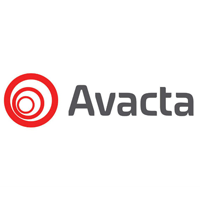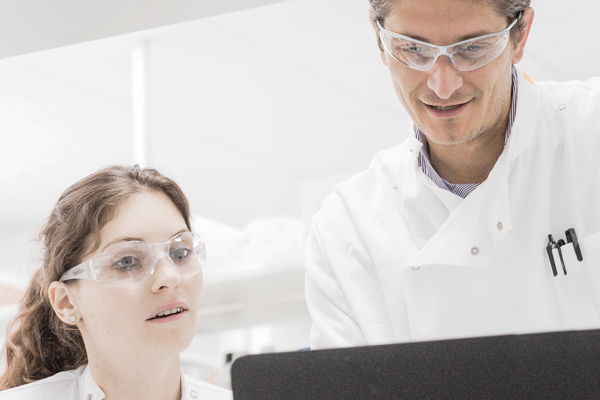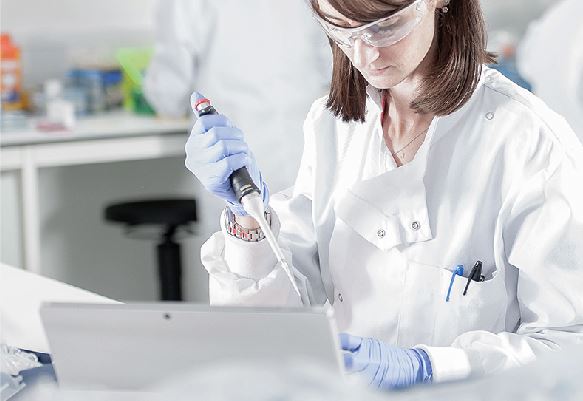Avacta Group Plc (LON:AVCT) is the topic of conversation when finnCap’s Research Director of Life Sciences Mark Brewer caught up with DirectorsTalk for an exclusive interview.
Q1: Avacta Group, they recently issued interim results for the period end 31st January 2019, can you explain for us the implications if taking its first affimer into the clinic?
A1: The implications for taking their PD-L1 Affimer into the clinic, which they are targeting for the end of 2020, are two-fold.
One, the PD-L Affimer it is the backbone of 2 essential therapeutic platforms within the Affimer stable but the first reason is it will demonstrate for the first time the safety and tolerability profile of an affimer in a human being. That has a second and significant benefit, if the product is shown to be safe and well tolerated it will have a significant increase to the value of the platform technology and subsequent licencing deals that the company is able to undertake.
Q2: What can you tell me about the relevance of its Tufts collaboration?
A2: Tufts is one of the leading medical schools in the US and in 2018, they announced a collaboration between the two parties that used Avacta’s Affirmer technology alongside Tufts research that they had undertaken using an anti-inflammatory compound to stimulate the immune system to try and help fight cancer.
The relevance is the fact that in this particular collaboration, the intention is that they will link an Affimer to a highly proinflammatory molecule, in this case something called I-DASH inhibitor which some people might refer to as a warhead or a cytotoxic.
The relevance is that the Affimer can target the cancer and within the confines, or the tumour microenvironment, the linker that connects the Affimer to the toxin is broken or cleaved by enzymes that are expressed only within that cellular microenvironment. The I DASH inhibitor as a consequence creates a very significant increase in inflammatory mediators which attracts parts of the immune system to that tumour microenvironment.
In this case, the PD-L1 antibody it in itself works as an immune checkpoint inhibitor so what it does is, like a couple of PD-L1 checkpoint inhibitors that are on the market already, it switches off the tumour’s immune evasion system. Secondly, because of the I DASH inhibitor you get an influx of the immune systems complement of cells to the environment to help kill the cancer cells.
So, you have two mechanisms of action, that is completely novel, it is completely differentiated from what is out there and offers up the opportunity to develop both proprietary products going into the future as well as opens up licencing opportunities.
Between the two parties, and AVCT has complete sole licencing and commercial rights to this platform, they have multiple Affimers targeting multiple checkpoints, there are multiple toxic warheads both within Tufts and Avacta can access generically and there are also multiple enzymes that can cleave that link between the two, between the Affimer and the proinflammatory or cytotoxic warhead so it really does open up lots of interesting applications.
I’d add one more point and that is that the two groups, they have shown in animal models that when you add a PD-L1 Affimer with an I DASH inhibitor you get complete regression of the tumours in those animals. The task for the group is to develop a single molecule that combines the two elements together, takes those into an animal study and prove proof of concept which is what they’re aiming to do by the end of this year.
So, very significant valuation inflection point coming up towards the end of 2019.
Q3: Talking about huge potential, what are your thoughts on the LG Chem licence?
A3: Yes, interesting because one of the issues or questions that investors have asked is when will the company undertake licence agreements with third party pharmaceutical companies and this represents the first really quite material and significant third party endorsement of the technology.
They signed a deal with LG Chem which is a subsidiary company of LG in Korea, it’s a well respected biologics-based pharmaceutical company with a lot of experience and know-how within the area of biologic drugs. The deal itself has the potential of generating up to $300 million worth of research and commercial milestones on top of which there would also be royalties if that product ever made it to the market.
It does demonstrate, as I said external endorsement of the Affimer platform for the first time and that’s not to be underestimated in my opinion.
Q4: Mark, could you just talk us through the Avacta Group’s business model?
A4: The company is unusual in that they are effectively two business models within the business in which Affimers have applications within a therapeutic setting and within the setting where it is used as a reagent in applications such as diagnostics or protein separation or just general reagents within the laboratory.
So, if you look at the therapeutic side, one should look at that as a traditional biotech business model in which the company can develop its own proprietary assets in which it can develop through licencing the platform technology to third party pharmaceutical companies which ultimately will help them to fund their own proprietary pipeline.
Unlike most biotech companies, the Affimers also have applications in the non-therapeutics or reagents market and this is where they have demonstrated that they can interact third party diagnostics companies, with reagents companies, life science companies. The idea being to licence the Affimer technology to those companies to be used in their own product for which they will receive an ongoing and sustainable royalty stream.
The issue for the company is one of execution, they have demonstrated that they can enter into agreements with large companies for example, they are in discussions with two of the world’s leading diagnostic companies who are evaluating Affimers within their particular programmes.
So, it is a question of time and I would point to a company that I also follow called Bioventix which applies a similar sort of business model. It has developed a range of sheep monoclonal antibodies which are used within diagnostic assays that have been developed by some of the largest diagnostics companies in the world. They generate $10 million of revenues, it’s a recurring revenue, they generate from those $10 million of revenues $8 million of EBITDA and they trade with a valuation of $200 million so trading on about 20 times revenues, given the very high margin and the royalties stream that they receive.
That provides, in my opinion, significant downside risk to the therapeutics model which is a higher risk but a significantly higher return model.








































